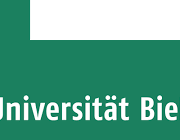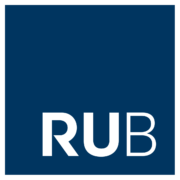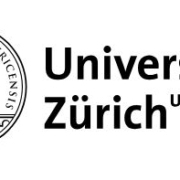(Submitted by Vienna Circle Society).
Call For Application (Deadline: February 15, 2020)
REPRESENTATION IN ART AND SCIENCE
Univie Summer School – Scientific World Conceptions (USS-SWC) July 6–17, 2020
The Univie Summer School – Scientific World Conceptions (USS-SWC) – until 2014 under the label “Vienna International Summer University” – will be held from July 6 to 17, 2020. The topic of the two-week course is “Representation in Art and Science ”. The main lecturers are Chiara Ambrosio (University College London), Angela Breitenbach (University of Cambridge) and Dominic McIver Lopes (University of British Columbia).
As an international interdisciplinary program, USS SWC brings graduate students in close contact with world-renowned scholars. The program is directed primarily to graduate students and junior researchers in fields related to the annual topic, but the organizers also encourage applications from gifted undergraduates and from people in all stages of their career who wish to broaden their horizon through crossdisciplinary studies of methodological and foundational issues in science.
The topic of the two-week course is ”Representation in Art and Science “:
The “two cultures” meme encourages a picture of art and science as opposites, and as sharing so little in common that it is difficult to “bridge” a deep gap between them. In fact, however, the arts and the sciences share many of the same representational tools, and exploit many of the same cognitive processes responsible for the working of those representational tools. This two-week workshop explores what can be learned about the arts and the sciences through an examination of their common languages, practices, and methodologies. Topics to be covered include: depiction, fiction and imagination, narrative, metaphor and analogy, and aesthetic value in science and the arts. Drawing on historical and contemporary approaches, we will examine the epistemic role of these phenomena in the sciences and also to their role in presenting scientific results.
Topics will include:
- art and science — two cultures?
- theories of depiction and images in science
- theories of fiction and models as fictions
- aesthetic value in science
- metaphor in science
- imagination in art and science
Application form and further information: http://www.univie.ac.at/vcs/SWC/
The Lecturers:
Chiara Ambrosio (University College London)
https://www.ucl.ac.uk/sts/people/dr-chiara-ambrosio
Angela Breitenbach (University of Cambridge)
http://angelabreitenbach.weebly.com/
Dominic McIver Lopes (University of British Columbia)
http://lopes.mentalpaint.net/
USS-SWC operates under the academic supervision of an International Program Committee of distinguished philosophers, historians, and scientists. Its members represent the scientific fields in the scope of USS-SWC, make contact to their home universities and will also support acknowledgement of courses taken by the students. USS-SWC is organised every year by the Institute Vienna Circle of the University of Vienna.
http://www.univie.ac.at/vcs/
http://wienerkreis.univie.ac.at/
Opening
Venue: Erika-Weinzierl-Saal, University of Vienna, Main Building, Universitätsring 1, 1010 Wien
Time: Monday, July 6, 2020, 9 a.m.
Further Information
www.univie.ac.at/vcs/SWC
From 2010 to 2018 USS-SWC was a part of the curriculum of the doctoral programme “The Sciences in Historical, Philosophical and Cultural Contexts”
http://dkplus-sciences-contexts.univie.ac.at/
There is an exchange programme with Duke University (North Carolina):
http://international.univie.ac.at/outgoing-students/non-eu-student-exchange-program/kom-2-bewerbungsunterlagen/
For further inquiries, please send email to martin.kusch@univie.ac.at or consult the IVC’s Web site.
Inquiries:
Organisation:
Robert Kaller
Institute Vienna Circle
Alserstraße 23
Top 32
1080 Wien
vcs@univie.ac.at
Tel. +43-1-4277-41232
Scientific director:
Prof. Martin Kusch
Department of Philosophy
University of Vienna
martin.kusch@univie.ac.at
Wiener Kreis Gesellschaft/Vienna Circle Society
Universitätscampus, Hof 1
Spitalgasse 2-4
A-1090 Wien, Austria
Tel: +43-1-4277 46504
Fax: +43-1-4277 9465
vcs@univie.ac.at
http://www.univie.ac.at/vcs/














